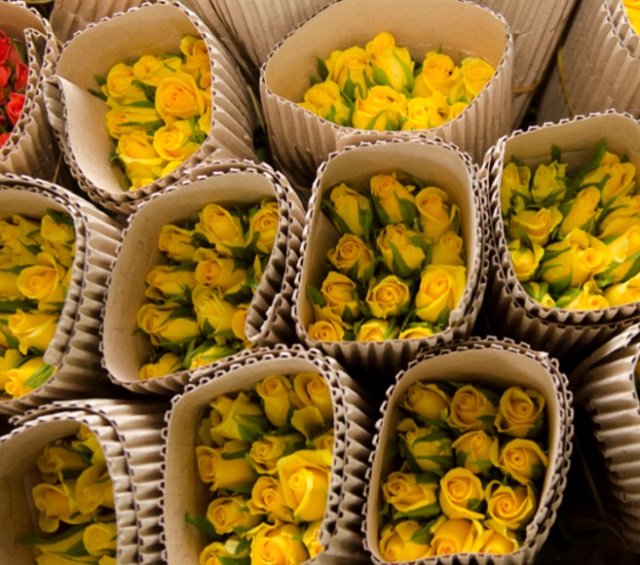
Several agriculture produce consignments shipped to Europe have been destroyed citing poor quality
kampala, Uganda | PATRICIA AKANKWATSA | Uganda’s horticulture export earnings are likely to drop this year. Sector players are blaming this on the unfavorable weather patterns and changes in product standards and certifications in the key market – Europe.
“From November last year to May this year, we did not receive any rain and this destructed our business. There was also increased pest infestation because of the heat,” James Kanyijje, the chief executive officer of KK Foods told The Independent in an interview.
Kanyijje, whose firm exports most of its fruits and vegetables to Europe, said the horticulture production is already below 60% compared with last year as result of prolonged drought that was experienced at the beginning of this year.
This situation has been worsened by farmers harvesting immature crops that fetch lower prices at the international market, according to Mansoor Nadir, the chief executive officer at the Kampala-based Pearl of Africa Natural Spice Exporters.
“We produce a lot but of low quality. Some farmers harvest when the crop is not ready. At the end, they fetch low prices,” he said.
Flower exporters, too, expect a drop in export earnings blaming constant changes in standards and certifications in Europe.
“The standards in the European market keep changing. They change specifications and certifications,” Ravi Kumar, the farm manager at Rosebud Farm Limited said.
“For example, we have been growing sweetheart roses (small flowers) but the European market now says that they want big ones…we are now uprooting and planting small ones and yet they take a year to mature. So, the business is already struggling this year.”
This perhaps expounds on Rosebud’s plan to diversify its market through exporting some of its flowers to the Chinese market.
The seemingly poor performance of the horticulture industry comes as the European market is threatening to ban imports of the country’s agriculture products.
Vincent Ssempijja, the minister for Agriculture, Animal Industry and Fisheries, said on Aug. 22, that the EU had sent a warning to the government over severe chemical contamination of horticulture produce being exported by farmers in the country. This was the third warning in four years.
In 2015, hot pepper export to Europe was suspended for more than a month due to poor storage issues, pesticide residues and packaging amongst others.
Ssempijja, who was speaking at the annual National Agricultural Advisory Services – NAADS review meeting in Kampala, said several consignments of agriculture produce shipped to Europe have again been rejected and destroyed over poor quality and presence of high contents of poorly mixed agro chemicals used to treat or preserve them.
He said EU has resolved to audit the sector in October for compliance to international and European Union Health standards before slapping a fresh ban in the event of non-compliance.
Latest statistics from the Bank of Uganda shows that though the country’s flower export volumes mainly to the EU have continued to decline, earnings have continued to surge.
For instance, in 2014, the country’s flower volumes stood at 14.6million tonnes worth $57.5million. However, in 2018, the country exported merely 6.2million tonnes worth $60.8million.
On the other hand, fruits and vegetable exports have increased from 27.9million tonnes worth $20.7million to 95.2million tonnes worth $40.6million during the same period under review.
 The Independent Uganda: You get the Truth we Pay the Price
The Independent Uganda: You get the Truth we Pay the Price


